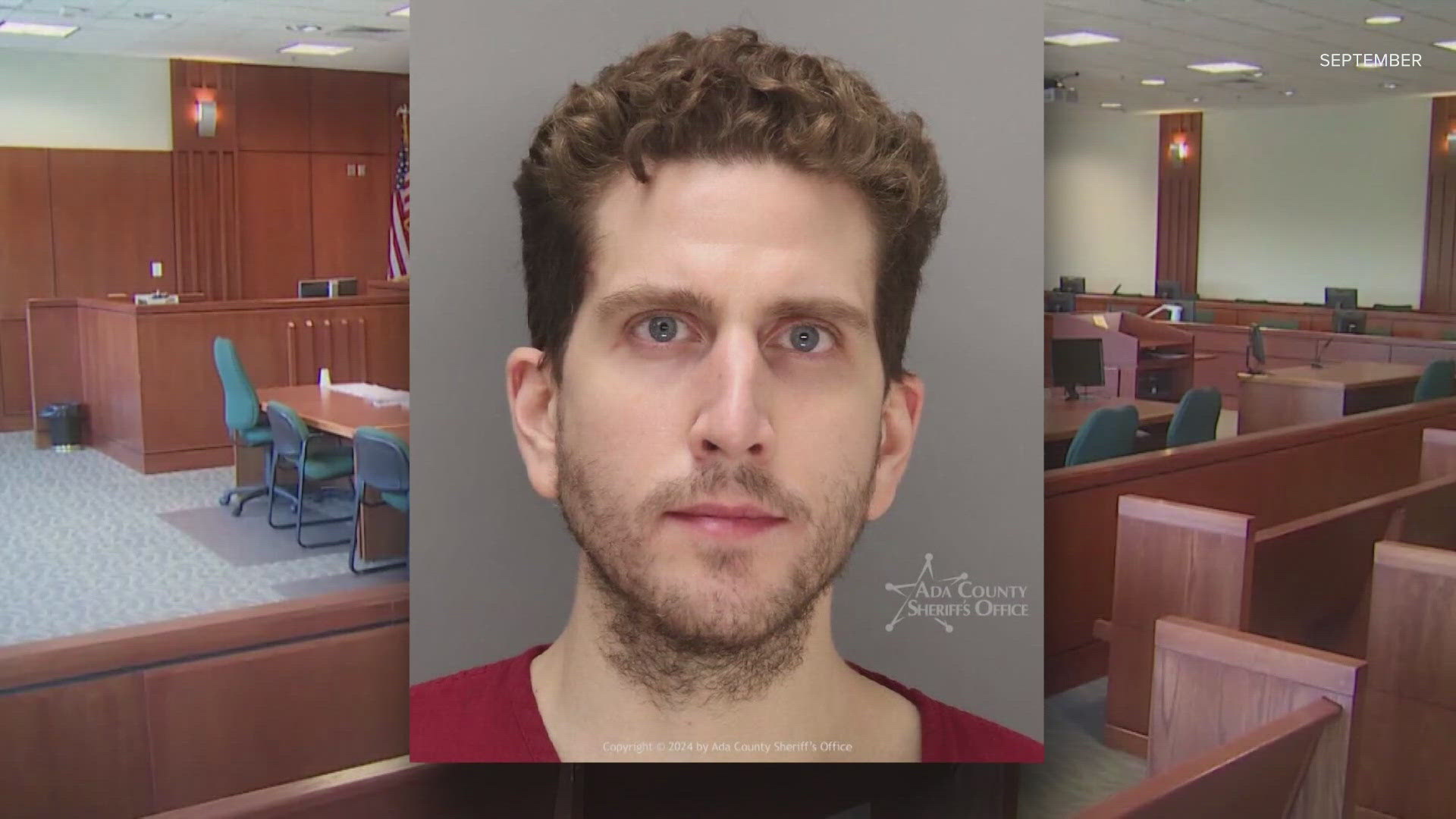MOSCOW, Idaho — The defense of the man accused of killing four University of Idaho students replied to the state's objection to strike the death penalty.
According to documents filed Friday, the state argued that issues with the manner of execution aren't "ripe," and that lethal injection and firing squad are approved methods of killing.
According to the documents, the defense argues that "if the delay and uncertainties about any eventual execution was a reason not to litigate such issues then much of the case law requiring these issues to be raised in the trial court needs revisiting."
Kohberger's defense team also argued that millions of taxpayer dollars are being spent on the case because of the State seeking the death penalty.
"The time and money being expended on the what the State implies is merely a hypothetical would itself be an injustice," the defense argued. "Unfortunately, the death penalty remains too real a possibility to be ignored."
The defense also said it acknowledges that the general judicial approach to the manner of execution claims is to "consider them as an afterthought." However, Kohberger's defense team argues in the documents that the State has no real plan to carry it out.
"Mr. Kohberger’s argument, however, is a challenge to the propriety of permitting a death verdict in this case when the State has no real plan to carry it out," the documents read. "It ought to be clear that if Idaho tomorrow adopted quartering as its method execution, no person should be forced to sit on death row awaiting a punishment that clearly would violate the Eighth Amendment."
The defense argues a death verdict based on circumstances ruled in past Supreme Court rulings violates the Eighth Amendment.
"Mr. Kohberger is not making a true Lackey claim as he has yet to spend decades on death row as the State foretells," the defense argues in the documents. "His argument is that when it is so foreseeable that the death penalty in a case is almost purely symbolic, the Constitution refuses it- because what it amounts to is a state of dehumanization that cannot be justified."
The defense cites a court ruling in 1958 when the Supreme Court ruled the Eighth Amendment didn't allow the government to denaturalize people, even in cases where death was a possible punishment.
"To permit the State to seek one where the actual means of execution are illegitimate is too great a farce for the Eighth Amendment," the defense argues. "Thus, this Court should consider the issue now."
A hearing is still scheduled on Nov. 7 for arguments on the motion challenging the death penalty.

